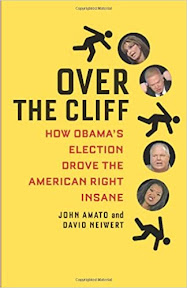 They May Not Want The Bomb - And other unexpected truths.
They May Not Want The Bomb - And other unexpected truths.By Fareed Zakaria NEWSWEEK Emerging Iran
Inside a land poised between tradition and modernity
Everything you know about Iran is wrong, or at least more complicated than you think. Take the bomb. The regime wants to be a nuclear power but could well be happy with a peaceful civilian program (which could make the challenge it poses more complex). What's the evidence? Well, over the last five years, senior Iranian officials at every level have repeatedly asserted that they do not intend to build nuclear weapons. President Mahmoud Ahmadinejad has quoted the regime's founding father, Ayatollah Ruhollah Khomeini, who asserted that such weapons were "un-Islamic." The country's Supreme Leader, Ayatollah Ali Khamenei, issued a fatwa in 2004 describing the use of nuclear weapons as immoral. In a subsequent sermon, he declared that "developing, producing or stockpiling nuclear weapons is forbidden under Islam." Last year Khamenei reiterated all these points after meeting with the head of the International Atomic Energy Agency, Mohamed ElBaradei.
Following a civilian nuclear strategy has big benefits. The country would remain within international law, simply asserting its rights under the Nuclear Non-Proliferation Treaty, a position that has much support across the world. That would make comprehensive sanctions against Iran impossible. And if Tehran's aim is to expand its regional influence, it doesn't need a bomb to do so.
Iranians aren't suicidal. In an interview last week, Israeli Prime Minister Benjamin Netanyahu described the Iranian regime as "a messianic, apocalyptic cult." In fact, Iran has tended to behave in a shrewd, calculating manner, advancing its interests when possible, retreating when necessary. The Iranians allied with the United States and against the Taliban in 2001, assisting in the creation of the Karzai government. They worked against the United States in Iraq, where they feared the creation of a pro-U.S. puppet on their border. Earlier this year, during the Gaza war, Israel warned Hizbullah not to launch rockets against it, and there is much evidence that Iran played a role in reining in their proxies.
Iran's ruling elite is obsessed with gathering wealth and maintaining power. (Sound familiar? Good capitalists all) The argument made by those—including many Israelis for coercive sanctions against Iran is that many in the regime have been squirreling away money into bank accounts in Dubai and Switzerland for their children and grandchildren. These are not actions associated with people who believe that the world is going to end soon.
Iran isn't a dictatorship. But it certainly is not a democracy, either. The regime jails opponents, closes down magazines and tolerates few challenges to its authority. But neither is it a monolithic dictatorship. It might be best described as an oligarchy, with considerable debate and dissent within the elites. Even the so-called Supreme Leader has a constituency, the Assembly of Experts, who selected him and whom he has to keep happy. (Hmm.. sounds more like the US all the time).
Ahmadinejad is widely seen as the "mad mullah" who runs the country, but he is not the unquestioned chief executive and is actually a thorn in the side of the clerical establishment. He is a layman with no family connections to major ayatollahs—which makes him a rare figure in the ruling class. He was not initially the favored candidate of the Supreme Leader in the 2005 election. Even now the mullahs clearly dislike him, and he, in turn, does things deliberately designed to undermine their authority.
Iran might be ready to deal. While the regime appears united in its belief that Iran has the right to a civilian nuclear program—a position with broad popular support—some leaders seem sensitive to the costs of the current approach. It is conceivable that these "moderates" would appreciate the potential benefits of limiting their nuclear program, including trade, technology and recognition by the United States. Both sides might get enough of what they consider crucial for it to work. Why not try this before launching the next Mideast war?
A Photographic Journey - The Changing Face of Iran
Iranian Cities and Travel
Video: Isfahan Diary—The Terror Victim
Video: Of the Qu'ran and Quarks
Video: The Laughing Radical
Photos: Emerging Iran
Zakaria: What You Know About Iran is Wrong
On the Road in Iran
Obama Chief of Staff Emanuel Rahm: Israel, Iran
Iran's Next President?
Khatami: 'The Country Can Be Run Better'
ElBaradei: Iranians 'Are Not Fanatics'














No comments:
Post a Comment